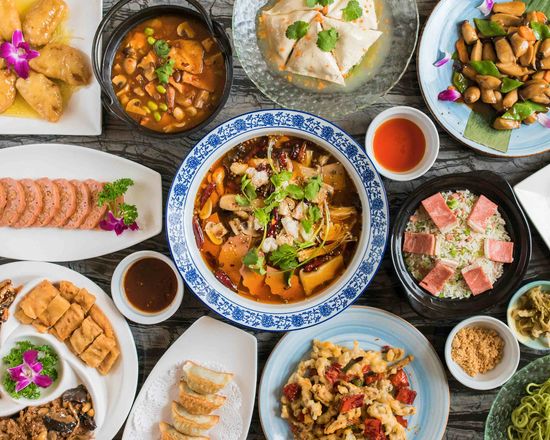Vegan movement in China : Growing trend or fad diet? | Daxue Consulting
The market of vegan food in China is experiencing fast growth
The vegan movement in China
In the last few years, Chinese consumers’ interest in meatless meals has soared. Chinese people are becoming more health-conscience and more conscientious about their food choices. They are increasingly aware of the negative consequences of consuming too much animal products, hence are open to eating plant-based foods. According to a report by Euromonitor, China was projected to be the fastest-growing market for vegan products between 2015 and 2020, with a growth rate of 17.2 percent. Chinese people are increasingly aware of the negative consequences of consuming too much animal products, hence are open to eating plant-based foods.
Veganism in China: Does it have potential?
However, being vegan or vegetarian in China is still very challenging. Although Chinese consumers have a wide range of plant-based food options, a typical Chinese meal contains a lot of meat. It’s not that the average Chinese diet consumes more meat than an average western diet, but rather meat is distributed among many dishes. Even many “vegetable” dishes are flavored with meat, hence sticking to veganism in China is very difficult.
Moreover, most people do not yet understand the vegan movement in China, so ordering a plant-based meal in a common Chinese restaurant can also be tricky. But this situation seems like it is being changed – Chinese, vegetarian restaurants have mushroomed in recent years, especially in first-tier cities such as Beijing and Shanghai. If you search “素食餐厅” (Chinese for vegetarian restaurant) on dianping.com (Chinese Yelp), over 500 results in Shanghai and almost 500 results in Beijing will be found.

The vegan food industry in China: Why veganism is trending among younger generation
Before China’s reform and opening up at the end of the 1970s, meat was still a luxury for most Chinese families. Unsurprisingly, as the meat has become more accessible and affordable, Chinese consumers started consuming huge amounts of meat without considering health. For many Chinese people – especially those who have experienced an empty stomach in their early lives – eating no meat is still a synonym for starvation and malnutrition. Most people believe that meat is one of the most nutritious foods, and a diet without meat will make you weak or even sick. Although it is very hard to cut out meat from Chinese consumers’ daily regimen, more and more people in China have learned the health consequences of eating an unbalanced diet. At the same time, young people are becoming more aware of different issues caused by meat-consumption, such as animal rights and environmental impacts – such questions contribute to the development of the vegan movement in China.
Read more about animal maltreatment in China: Mistreatment of Animals in Chinese Wildlife Parks and marine parks.
The tradition of eating vegetarian food in China
Although in modern China, meat is an indispensable part of a typical dining table, vegetarianism in China was actually rooted in religion and culture. Buddhist monks are not allowed to kill for food or accept an animal product which has been killed for them. Many temples in China run their own monastic restaurants within the institutions. Visitors of Buddhist temples – no matter religious or not – enjoy a nice vegetarian meal in the temple. It is a delicacy for many Chinese people which comes along with a good conscience of not killing lives for the meal. In the past, Chinese people would give up on meat for a certain period of time to show the Buddha their devotion.
Veganism in China: A long history of “imitation meat”
While mimicking meat with plant-based ingredients is becoming a huge trend in the West in recent years, “imitation meat” is nothing new for Chinese consumers. In one respect, China has a very sophisticated food culture, wit and playfulness have always played an important role in food preparation. On the other hand, there always has been a need for imitation meat for a religious reason. For example, the history of “rolled-tofu chicken” (素鸡Suji, Chinese for vegetarian chicken) can be traced over 1000 years back and is a common soy-based product many Chinese people are familiar with.
China has its own plant-based meat producers who understand Chinese consumers’ taste preferences and eating habits. However, most of them are limited to Chinese styled cuisine. “Consumers and media don’t know about us because we don’t have the star power of the Western start-ups, which get investors like [Hong Kong businessman] Li Ka-shing and Bill Gates,” Zhou, senior marketing manager of Whole Perfect Food, said in an interview with South China Morning Post. The Chinese plant-based meat manufacturer, which is set up in 1993 and headquartered in Shenzhen, has an annual sale of 300 million yuan (US$44.6 million) and plans to become a global player in the “imitation meat” industry.

Take-aways for international companies who want to enter the market of vegan food in China
- A typical Chinese dining table contains a lot of meat and other animal products. Not eating meat is being considered as malnutrition for the majority of Chinese consumers. Veganism in China is still far from the mainstream diet.
- China has a rich catering culture. Although health issue plays a more and more important role in Chinese consumers’ diet, the taste can never be compromised.
- China has a long history of imitating meat with plant-based ingredients. Consumers are familiar with many kinds of vegetarian dishes which taste and look like meat or other animal products.
- Concerns about animal rights and environmental impacts, as well as the vegan movement in China, are still at the early stage in China. For the mass consumers, purchasing vegetarian food in China- is more about a healthy diet.
- Environmental pollution and food safety have been seen as crucial issues in China; imported product is often considered more nutritious and safer due to stricter quality control. (Read more about importing food to China)
Author: Chencen Zhu
Make the new economic China Paradigm positive leverage for your business
Do not hesitate to reach out our project managers at dx@daxue-consulting.com to get all answers to your questions










![[Podcast] China paradigm episode #9: How to successfully run a restaurant in China](../wp-content/uploads/2018/11/Bonnefoy-Youtube-Cover-1-150x150.jpg)




